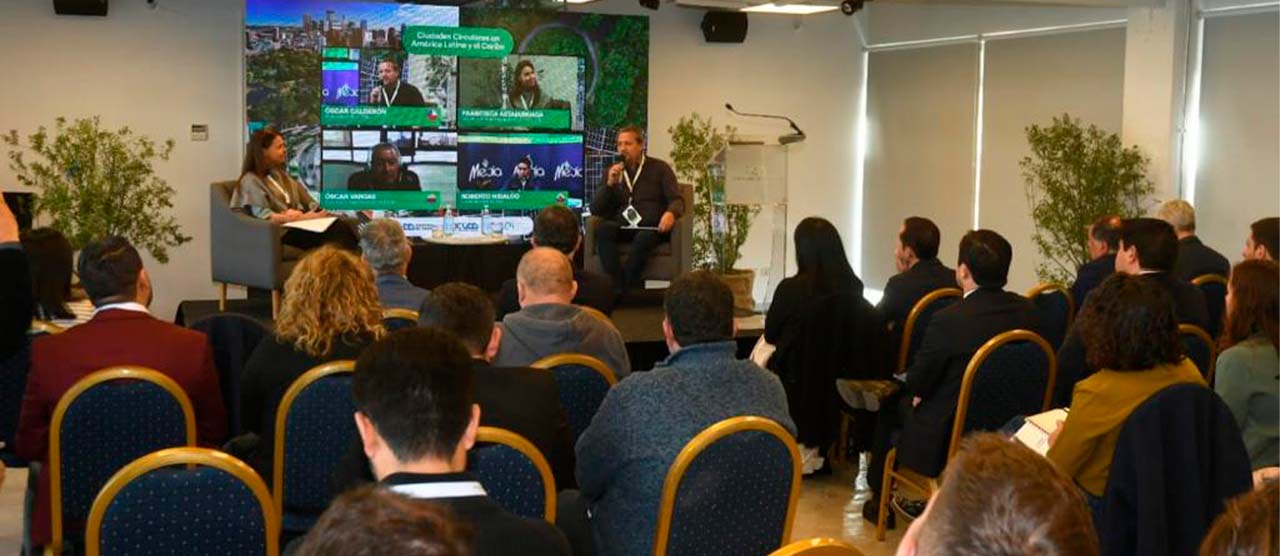
- In response to the need to promote good socio-environmental practices, the Center for Innovation in Cities of the School of Architecture of the Universidad del Desarrollo (UDD) in Chile and Enel have joined forces to design a reference framework for cities in Latin America and the Caribbean.
- The proposal suggests 16 steps for local governments to move from linear models to circularity, improving the quality of life of their inhabitants and addressing the current climate challenge. The key is to focus on developing a vision, characterizing the city's circular economy, and establishing governance.
Santiago, May 03, 2023 - Enel Distribución has been implementing its first project to manufacture concrete poles with recycled aggregates since last year. The initiative aims at producing 500 poles in different points of its concession area, with the same capacity and durability as traditional ones, and we estimate that it will avoid the final disposal of 5 thousand tons of concrete per year, reducing raw material usage from quarries and rivers.
Also, many projects in different regional cities and capitals are already implementing circular initiatives, favoring a more sustainable production and consumption model. The signing of the Declaration of Circular Cities of Latin America and Caribbean in 2021 reflected this phenomenon, bringing together different actors from urban centers that recognize the environmental crisis’ urgency and are committed to a set of measures moving towards an urban transition with a sustainable viewpoint.
How to move faster toward this new sustainable paradigm? Enel and Universidad del Desarrollo's Center for Innovation in Cities under the Dept. of Architecture joined forces to propose a reference framework for signatory cities so they may assess their progress and review cases of good practices.
The document proposes 16 steps to move towards urban circularity, divided into three stages: defining an approach, designing a strategy, and implementing actions. It also highlights success stories implemented in Quillota, Santiago, Buenos Aires, Bogota, Lima, and Mexico City, among other urban centers.
"We are proud to present this new study on circularity. Working together is key to balancing progress and the planet's health. In the search for solutions and calls to action, we all have a role to play: companies, to integrate sustainability at a strategic level; authorities, to promote public policies encouraging this new form of development; academia, to achieve a shared vision allowing us to approach concrete results", says Fabrizio Barderi, general manager of Enel Chile.
The initial stage to approach urban circularity, according to the study, is an approach phase, which translates into the formulation of initial agreements to ensure an inclusive process, team building and governance, the survey of existing initiatives, contracting of possible studies to analyze context and the elaboration of a shared vision identifying medium and long term objectives and goals.
"We know cities are the physical systems we have developed as a society to inhabit the planet. But for centuries since the Industrial Revolution, we have been generating many innovations that directly impact nature. Circularity is a characteristic of all natural systems. We have the task of advancing by creating technologies in line with this original principle, allowing us to redefine how we function," says Francisca Astaburuaga, director of the Center for Innovation in Cities at the UDD School of Architecture and Art.
The document and 16 proposed steps to advance sustainable urban development are now available for consultation and download at https://www.enel.cl/es/sostenibilidad/economia-circular/ciudades-circulares/publicaciones.html. It aims to promote a circular economy scheme based on renewable material and energy inputs, extending the life of goods, sharing and closing cycles, always to create a city's shared vision centered around quality of life and care of the planet for sustainable development.

